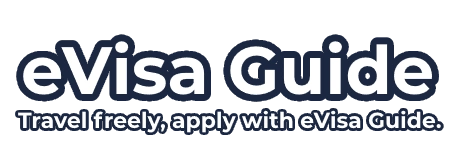Atlantic Immigration Pilot for Canada is your golden ticket to a thriving life in the picturesque Atlantic provinces. This innovative program not only opens doors to new opportunities but also facilitates a smoother transition for newcomers. Imagine the serenity of coastal living mingled with the excitement of a fresh start. Sounds appealing, right? Let’s dive into the specifics of this unique immigration pathway and discover how it can change your life.

Overview of the Atlantic Immigration Pilot for Canada
What is the Atlantic Immigration Pilot?
The Atlantic Immigration Pilot (AIP) is a collaborative initiative between the Canadian government and four Atlantic provinces: New Brunswick, Nova Scotia, Prince Edward Island, and Newfoundland and Labrador. This pilot aims to attract skilled workers, international graduates, and their families to help meet the labor market needs of these regions. The program offers a streamlined process for obtaining permanent residence, making it an attractive option for those looking to build a new life in Canada. It’s designed to support economic growth and address demographic challenges by bringing in talented individuals who can contribute to the local economy.
Objectives of the Program
The primary objectives of the Atlantic Immigration Pilot are multifaceted. First, it aims to address labor shortages that are common in the Atlantic provinces by attracting skilled workers and international graduates. Second, it seeks to enhance the demographic stability of these regions, which often face population decline. Third, the program focuses on promoting family reunification by enabling families to migrate together. Lastly, it aims to support the sustainable economic development of Atlantic Canada by ensuring that newcomers have the necessary support to settle and integrate successfully.

Geographical Scope
Atlantic Canada: The Region
Atlantic Canada, known for its stunning coastal landscapes and friendly communities, comprises four provinces: New Brunswick, Nova Scotia, Prince Edward Island, and Newfoundland and Labrador. This region is renowned for its rich cultural heritage, vibrant music scenes, and a slower pace of life that offers a perfect balance between work and leisure. The Atlantic provinces are ideal for those seeking a high quality of life amidst natural beauty and welcoming communities.
New Brunswick: An Atlantic Province
New Brunswick, one of the key provinces in the AIP, offers a unique blend of urban and rural living. With its bilingual communities, it’s a haven for both English and French speakers. The province is rich in natural resources, and its economy thrives on forestry, mining, and agriculture. New Brunswick boasts a low cost of living and a high quality of life, making it an attractive destination for newcomers.
Nova Scotia: An Atlantic Province
Nova Scotia, another participant in the AIP, is famous for its stunning coastlines, historic sites, and thriving arts scene. The province’s economy is diverse, with strong sectors in education, health care, and technology. Nova Scotia offers a welcoming community and numerous opportunities for career growth, particularly for those in the health and tech industries.
Prince Edward Island: An Atlantic Province
Prince Edward Island (PEI) is the smallest of the Atlantic provinces but is rich in charm and character. Known for its red sand beaches, rolling countryside, and vibrant local culture, PEI’s economy is driven by agriculture, tourism, and fisheries. PEI offers a close-knit community atmosphere and a relaxed lifestyle, perfect for those looking to escape the hustle and bustle of larger cities.
Newfoundland and Labrador: An Atlantic Province
Newfoundland and Labrador, the easternmost province in Canada, is known for its rugged landscapes and unique cultural heritage. The province’s economy is heavily influenced by natural resources, including oil, mining, and fisheries. Newfoundland and Labrador offer a unique blend of natural beauty and economic opportunity, making it an appealing destination for immigrants.

Key Entities and Their Roles
Immigration, Refugees and Citizenship Canada (IRCC)
Immigration, Refugees and Citizenship Canada (IRCC) is the federal body responsible for overseeing the Atlantic Immigration Pilot. IRCC plays a crucial role in setting the program’s policies, assessing applications, and granting permanent residency status. The IRCC ensures that the program aligns with national immigration goals and supports the integration of newcomers.
Provincial Governments and Their Responsibilities
The provincial governments of New Brunswick, Nova Scotia, Prince Edward Island, and Newfoundland and Labrador are key players in the AIP. They collaborate with the IRCC to identify labor market needs, designate employers, and endorse job offers. The provincial governments ensure that the program meets regional economic objectives and supports community growth.
Designated Employers
Designated employers are businesses in the Atlantic provinces that have been approved to hire international candidates through the AIP. These employers play a critical role by providing job offers and supporting the settlement process. Designated employers help fill labor gaps and contribute to the economic development of their regions.
International Graduates
International graduates who have completed their studies at recognized post-secondary institutions in the Atlantic provinces are eligible to apply for the AIP. This pathway provides them with an opportunity to transition from temporary to permanent residency. International graduates bring fresh skills and perspectives to the local workforce, enhancing innovation and productivity.
Skilled Foreign Workers
The AIP also targets skilled foreign workers who possess the qualifications and experience needed to fill job vacancies in the Atlantic provinces. This group includes professionals in various fields such as healthcare, technology, and trades. Skilled foreign workers are essential for addressing labor shortages and supporting economic growth in the region.
Temporary Residents
Temporary residents, including those on work or study permits, can also transition to permanent residency through the AIP. This pathway allows them to continue contributing to the local economy while gaining the stability of permanent residency. Temporary residents provide valuable contributions to the workforce and community life in the Atlantic provinces.
| Information in English | Description in English |
|---|---|
| Atlantic Immigration Pilot (AIP) | A program to attract skilled workers and international graduates to Atlantic Canada. |
| IRCC | Federal body overseeing the AIP, assessing applications, and granting permanent residency. |
| Provincial Governments | Collaborate with IRCC to identify labor market needs and endorse job offers. |
| Designated Employers | Approved businesses that hire international candidates through the AIP. |
| International Graduates | Eligible to apply for AIP after completing studies in Atlantic Canada. |
| Skilled Foreign Workers | Qualified professionals needed to fill job vacancies in Atlantic Canada. |
| Temporary Residents | Can transition to permanent residency through the AIP. |

Eligibility Requirements
Qualifying Work Experience
To be eligible for the Atlantic Immigration Pilot, applicants must have a minimum of one year of work experience in a related occupation. This experience should be full-time and obtained within the last three years. The work experience must be in NOC skill type 0, A, or B, which includes managerial, professional, and technical jobs. The goal is to ensure that candidates possess the skills needed to contribute effectively to the local labor market.
Educational Requirements
Applicants must have a high school diploma at the very least, but higher education qualifications such as a college diploma or university degree can enhance their eligibility. Additionally, foreign educational credentials must be assessed and deemed equivalent to Canadian standards through an Educational Credential Assessment (ECA). This ensures that applicants have the necessary educational background to succeed in their new roles.
Language Requirements
Proficiency in English or French is a key requirement for the AIP. Applicants must take a language test approved by IRCC and achieve a minimum level of Canadian Language Benchmark (CLB) 4 in all four language abilities: listening, speaking, reading, and writing. Language proficiency ensures effective communication and integration into the community and workplace.
Settlement Funds
Applicants must demonstrate that they have sufficient funds to support themselves and their families upon arrival in Canada. The amount required varies depending on the size of the family. These settlement funds ensure that newcomers can sustain themselves during their initial period in Canada, reducing financial strain and facilitating a smoother transition.

The Application Process
Applying for the Atlantic Immigration Pilot
The application process for the AIP involves several steps. First, candidates must secure a job offer from a designated employer in one of the Atlantic provinces. Next, the employer must obtain provincial endorsement for the job offer. Once these steps are completed, the candidate can submit their application for permanent residence to IRCC. This streamlined process is designed to be efficient and straightforward, making it easier for candidates to navigate.
Starting Your Application
To start the application process, candidates should research and connect with designated employers in the Atlantic provinces. They can use online job portals, attend job fairs, and network with industry professionals. Securing a job offer is the first and most crucial step in the application process, as it paves the way for the subsequent steps.
Temporary Work Permit Application
In some cases, candidates may be eligible for a temporary work permit while their permanent residence application is being processed. This allows them to move to Canada and start working immediately. The temporary work permit provides an interim solution for candidates eager to begin their new life in the Atlantic provinces.
Permanent Residence Application
Once all required documents are gathered, candidates can submit their permanent residence application to IRCC. This includes proof of job offer, provincial endorsement, educational credentials, language proficiency, and settlement funds. The permanent residence application is the final step in the process, leading to a new chapter in Canada for successful applicants.

Job Offers and Employment
Receiving a Job Offer from a Designated Employer
A crucial aspect of the AIP is obtaining a job offer from a designated employer. These employers are vetted by the provincial governments and are authorized to hire international candidates. The job offer must be full-time and non-seasonal, ensuring stable employment for the candidate.
Provincial Endorsement of Job Offers
After receiving a job offer, the employer must seek provincial endorsement. This involves the provincial government reviewing the job offer and ensuring it meets the program’s criteria. Provincial endorsement is a vital step that validates the job offer and supports the candidate’s application.
Starting a Job with a Designated Atlantic Employer
Once the job offer and provincial endorsement are secured, candidates can begin their employment with the designated Atlantic employer. This marks the start of their journey in Canada, where they can contribute to the local economy and integrate into the community. Starting a job with a designated employer provides stability and a clear path to permanent residency.
Employers and Labour Market Impact Assessment (LMIA)
One of the advantages of the AIP is that designated employers do not need to obtain a Labour Market Impact Assessment (LMIA) to hire international candidates. This simplifies the hiring process and reduces administrative burdens. The absence of LMIA requirements accelerates the hiring process and makes it more attractive for employers to participate in the program.

Settlement Support
The Settlement Plan
A key component of the AIP is the settlement plan, which outlines the support and services available to newcomers. This plan is tailored to the individual needs of each candidate and their family, covering areas such as housing, education, and healthcare. The settlement plan ensures a smooth transition and helps newcomers integrate successfully into their new community.
Working with Settlement Service Providers
Settlement service providers play a crucial role in supporting newcomers through the AIP. These organizations offer a range of services, including language training, job search assistance, and community orientation. Working with settlement service providers enhances the newcomer experience and helps them build a strong foundation in Canada.
Resources for Settling in Canada
Numerous resources are available to help newcomers settle in Canada, from government websites to community organizations. These resources provide valuable information on various aspects of life in Canada, including legal rights, cultural norms, and local services. Accessing these resources can significantly ease the settlement process and help newcomers feel more at home.

Benefits of the Atlantic Immigration Pilot
For Employers
The AIP offers numerous benefits for employers in the Atlantic provinces. It provides access to a broader talent pool, allowing employers to fill labor gaps with skilled international candidates. Additionally, the streamlined process and absence of LMIA requirements make it easier and quicker to hire. Employers can enhance their workforce and drive business growth through the AIP.
For International Graduates and Skilled Foreign Workers
For international graduates and skilled foreign workers, the AIP offers a clear and efficient pathway to permanent residency. It provides opportunities to build a career, settle with family, and contribute to the local community. The AIP opens doors to a new life in one of Canada’s most beautiful regions, offering both professional and personal fulfillment.
